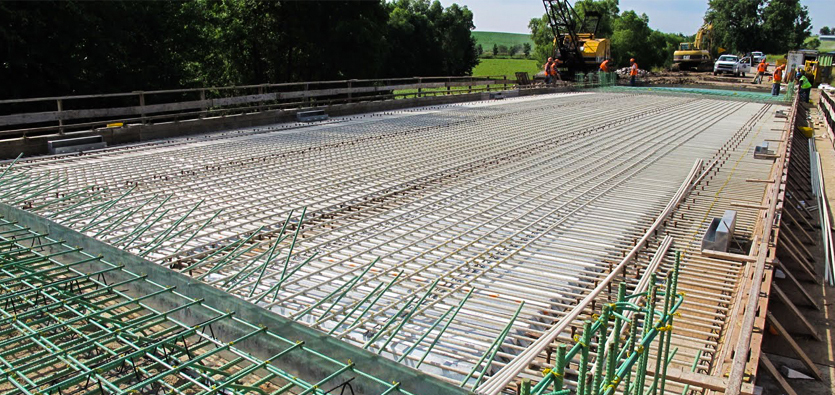The Role of Recycled Composites: Enhancing Efficiency and Sustainability Initiatives
In today's ever-evolving landscape of products engineering and sustainability initiatives, the application of recycled composites has actually emerged as an engaging location of rate of interest. These cutting-edge materials supply a distinct mix of enhanced efficiency capacities and environmental advantages that hold substantial guarantee for a large range of sectors. By harnessing the power of recycled compounds, companies can not only raise their functional efficiency and product high quality but likewise add to a more sustainable future. The complex interaction in between these compounds, performance metrics, and sustainability objectives paints an interesting image of potential improvements yet to be completely explored.
Benefits of Recycled Composites
Recycled composites provide a sustainable remedy that not just boosts efficiency yet additionally lowers ecological impact in various industries. One of the key benefits of using recycled composites is their ability to divert waste from garbage dumps. By integrating materials such as recycled plastics or carbon fiber into manufacturing procedures, business can decrease the amount of waste generated and advertise a round economy.
Moreover, recycled composites frequently display comparable or even superior mechanical homes to virgin materials. This means that items made from recycled composites can maintain high efficiency requirements while being much more eco pleasant. In addition, utilizing recycled composites can aid business meet their sustainability objectives and lower their carbon impact.

Performance Advantages of Recycled Compounds
Enhancing structural stability and sturdiness, recycled composites supply noteworthy efficiency benefits in various commercial applications. One substantial advantage is the boosted strength-to-weight ratio that reused compounds provide. This residential or commercial property is specifically essential in sectors such as aerospace, automobile, and building and construction, where lightweight materials that preserve high stamina are very demanded.

In addition, recycled compounds supply exceptional fatigue resistance compared to many traditional products - composites. This particular is crucial in industries subject to cyclic loading or dynamic tensions, as it helps prevent early failing and makes certain lasting reliability
Furthermore, recycled composites can be tailored to meet specific efficiency demands by adjusting the type and percentage of recycled materials used in their production process. This customization capacity enables the advancement of high-performance composites that resolve the special needs of different industries, additionally highlighting the efficiency advantages of recycled composites.
Environmental Influence of Recycled Composites
The fostering of recycled composites in different sectors has triggered a closer assessment of their ecological impact. In contrast to traditional compounds, recycled compounds offer the benefit of drawing away waste from landfills and minimizing the demand for raw materials extraction.
Moreover, the use of recycled compounds can lead to a reduction in total carbon footprint and environmental pollution. By integrating recycled products into new composite products, business can add to source conservation and waste decrease initiatives. In addition, the toughness and longevity of recycled composites can prolong product life expectancy, more decreasing environmental impact. In spite of these benefits, obstacles such as maintaining material quality and guaranteeing proper recycling framework exist. Continued research study and development in this field are vital to optimize the environmental performance of recycled composites and advance sustainable practices across sectors.
Applications of Recycled Compounds
Different industries have actually accepted the usage of recycled composites as a result of their convenience and performance-enhancing residential properties. One of the crucial applications of recycled composites remains in the vehicle market, where they are used to make lightweight components such as bumpers, indoor panels, and under-the-hood parts. These compounds help in reducing the total weight of automobiles, boosting fuel efficiency and reducing carbon exhausts.
In the building sector, recycled compounds are progressively being used to develop weather-resistant and durable structure materials. These products use high strength-to-weight ratios, making them perfect for applications such as roof covering, cladding, and decking. Additionally, the usage of recycled composites in framework jobs, such as tunnels and bridges, has actually gained grip due to go to these guys their long life and resistance to corrosion.
Moreover, the aerospace market counts on recycled compounds to create aircraft parts that require high stamina and go stiffness. These composites play a critical function in boosting the performance and gas performance of aircraft while lowering upkeep expenses. Overall, the varied applications of recycled compounds across markets highlight their substantial contribution to improving sustainability initiatives and enhancing efficiency standards.
Future Overview for Recycled Composites
With a raising focus on sustainability and advancement, the future expectation for recycled composites in different sectors shows up promising. As companies aim to fulfill ecological goals and lower their carbon impact, the need for sustainable materials like recycled composites is expected to climb dramatically. Industries such as automobile, building, consumer, and aerospace goods are increasingly transforming to recycled compounds as a result of their light-weight, durable, and environment-friendly homes.
In the auto industry, making use of recycled composites in automobile production is predicted to boost as car manufacturers look for to create lighter and more fuel-efficient automobiles. In a similar way, in the construction market, there is an expanding passion in operation recycled composites for facilities jobs to lower waste and boost sustainability. The aerospace industry is also checking out the possibility of recycled compounds for aircraft components to improve fuel effectiveness and minimize exhausts.
Verdict
To conclude, recycled composites provide various advantages in regards to efficiency and sustainability. They give better toughness and sturdiness contrasted to typical products, while additionally minimizing ecological influence by recycling waste materials. The applications of recycled composites are large, ranging from construction to automobile markets. Moving on, the usage of recycled compounds is anticipated to remain to expand as markets and business prioritize sustainability efforts in their procedures.
In today's ever-evolving landscape of materials design and sustainability efforts, the usage of recycled composites has actually emerged as an engaging location of interest. In comparison to conventional compounds, recycled compounds use the advantage of drawing away waste from garbage dumps and decreasing the need for raw products extraction. By integrating recycled materials right into new composite items, business can add to resource conservation and waste decrease efforts.In the construction sector, recycled compounds are increasingly being made use of to create weather-resistant and resilient structure materials. As companies aim to meet environmental objectives and decrease their carbon impact, the i loved this demand for lasting materials like recycled composites is expected to climb dramatically.